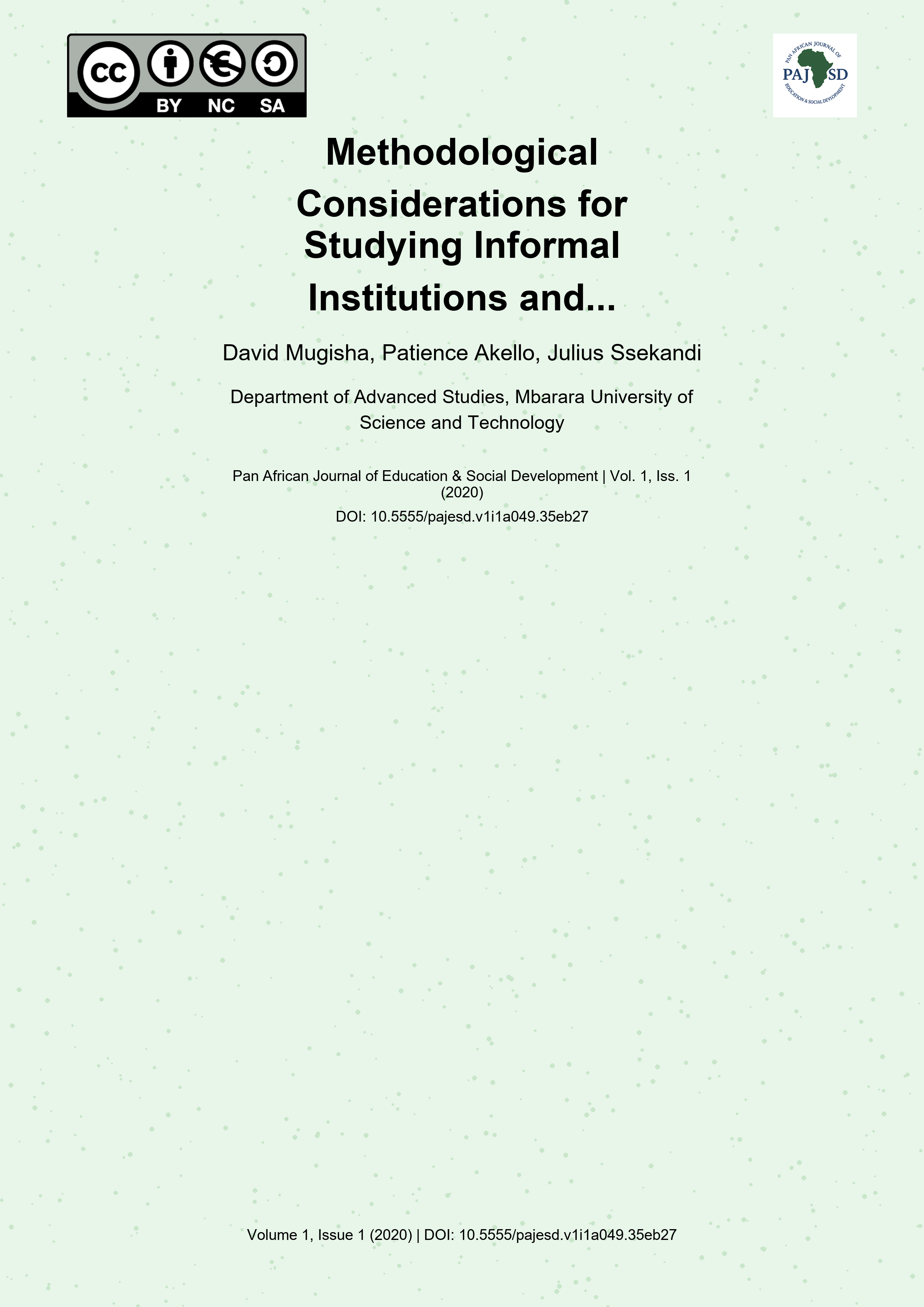Methodological Considerations for Studying Informal Institutions and Educational Attainment in Uganda
Keywords:
Informal Institutions, Educational Attainment, Sub-Saharan Africa, Qualitative Methods, Mixed-Methods Research, UgandaAbstract
This methodology article addresses the critical challenge of empirically capturing the influence of informal institutions on educational attainment in Uganda. While formal policy is often the focus of educational research, the profound role of deeply embedded social norms, kinship obligations, and indigenous knowledge systems in shaping educational choices and outcomes remains under-examined due to methodological inadequacies. This article proposes a mixed-methods, ethnographic-oriented approach to bridge this gap. The proposed design combines longitudinal household surveys with in-depth narrative interviews, participatory focus group discussions, and community-based observatory methods to triangulate data. This allows for the quantification of trends while centering the lived experiences and interpretations of students, parents, and community elders. Key methodological arguments advanced include the necessity of decolonizing research tools by integrating locally resonant concepts and proverbs, the strategic selection of multi-generational participants to trace normative evolution, and the ethical imperative of fostering reciprocal relationships with communities. The findings from applying this framework, though methodological in focus, reveal how informal institutions like collective childcare and perceptions of indigenous wisdom create both facilitative and restrictive pathways for schooling. This approach offers significant implications for African educational research and policy, providing a replicable model for generating contextually grounded evidence that can inform more culturally responsive and effective interventions aimed at improving educational equity across the continent.

Downloads
Published
Versions
- 2025-10-12 (2)
- 2019-01-15 (1)
Issue
Section
License
Copyright (c) 2020 PAJESD

This work is licensed under a Creative Commons Attribution 4.0 International License.
